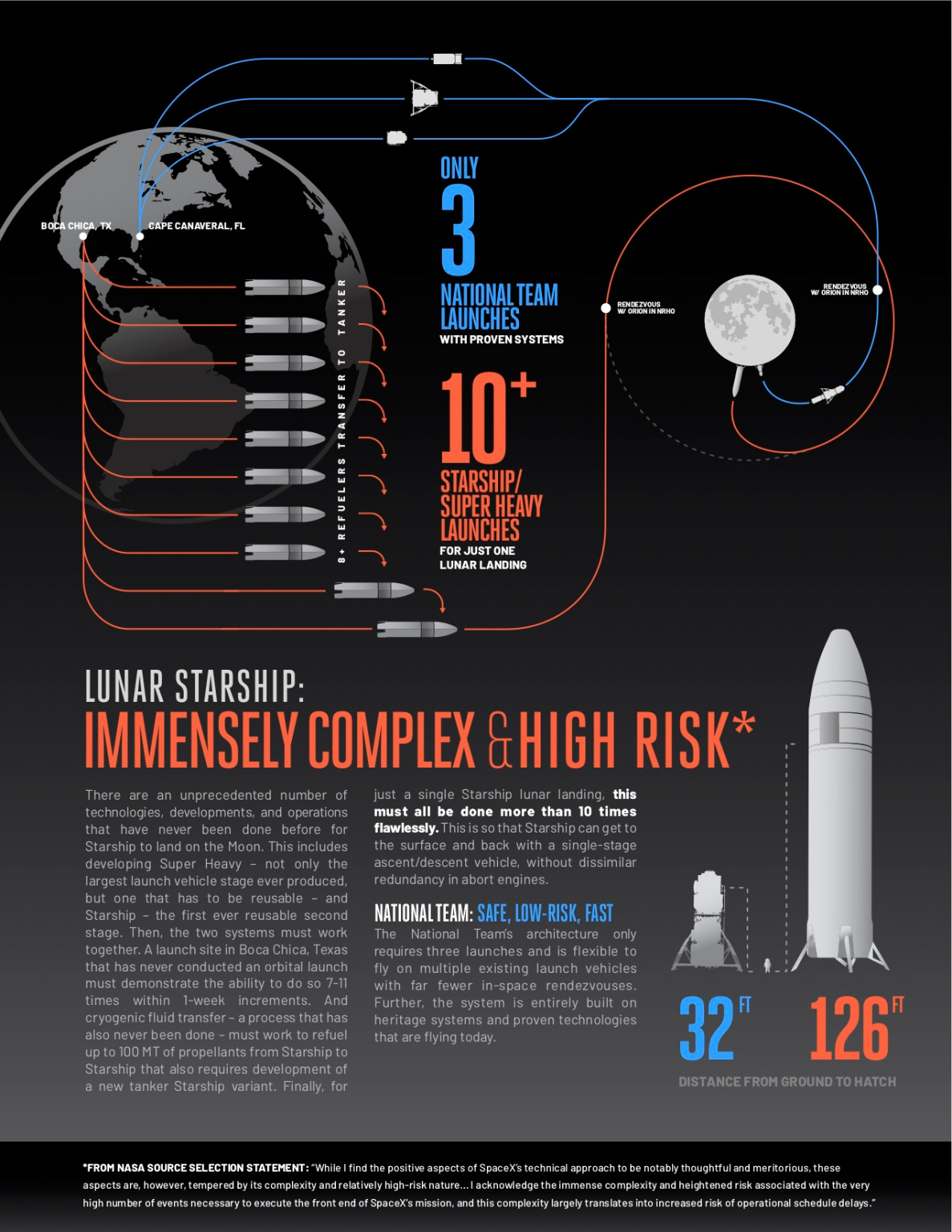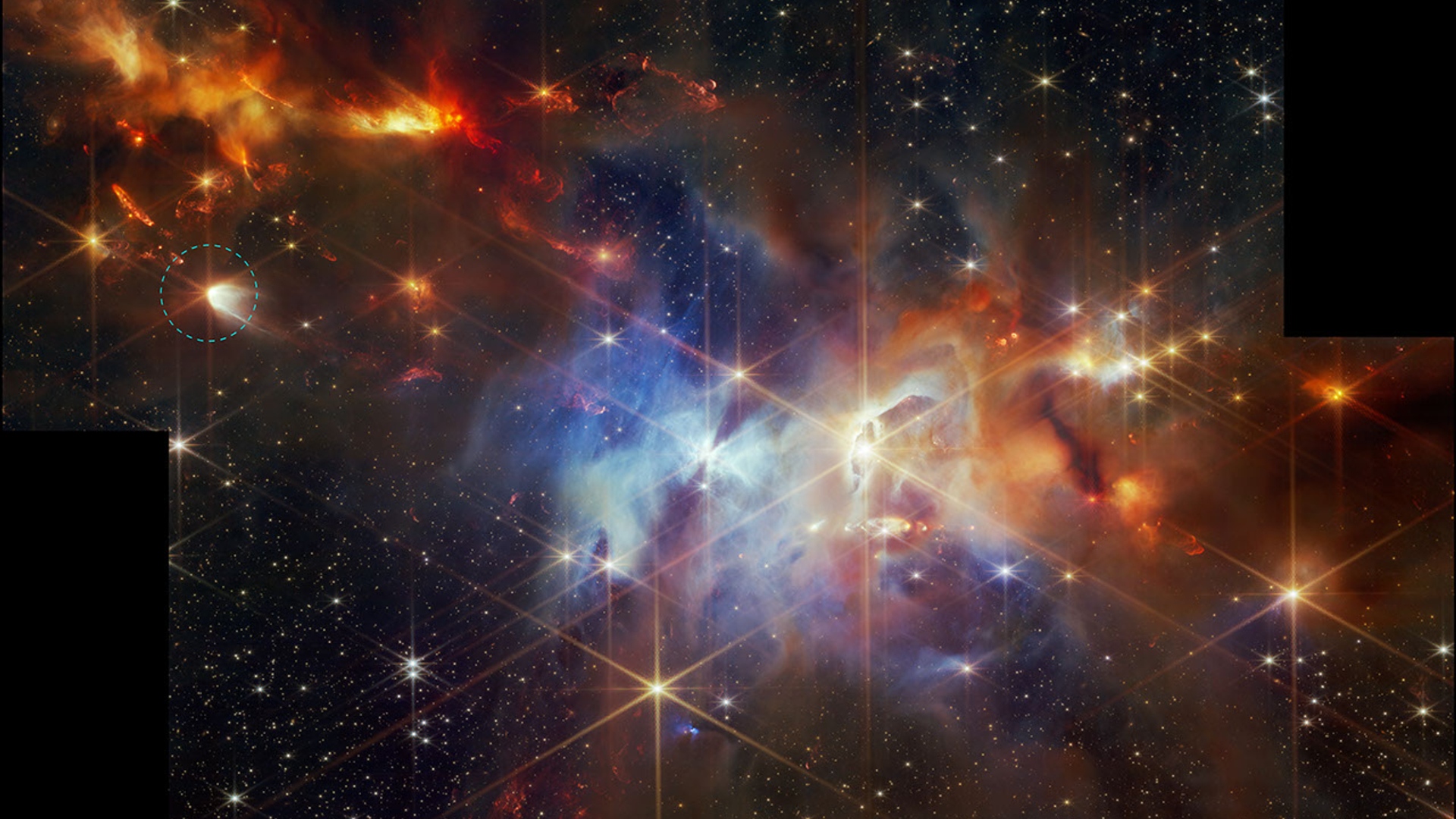Jeff Bezos' Blue Origin sues NASA over denied moon lander contract
Blue Origin is upping the ante.

Blue Origin is now suing NASA in its latest attempt to push back against the agency's decision to award SpaceX its moon lander contract.
Jeff Bezos' space company has made quite a few complaints about NASA's decision to award only SpaceX its Human Landing System (HLS) contract to provide the agency's new moon lander for its Artemis program when many expected the agency to select two winners. Now, after its protests to the U.S. Government Accountability Office (GAO) have been denied, Blue Origin is "upping the ante" by filing a federal lawsuit challenging NASA's decision.
The lawsuit "challenges NASA's unlawful and improper evaluation of proposals submitted under the HLS Option A BAA," or broad agency announcement, Blue Origin said in the motion to seal filings, according to SpaceNews.
Blue Origin filed the lawsuit on Friday (Aug. 13) in the Court of Federal Claims, which has jurisdiction over protests that have already been reviewed by the GAO. In-depth details about the lawsuit are not yet publicly available because the documents were sealed after Blue Origin was granted a protective order today (Aug. 16).
Related: NASA picks SpaceX's Starship to land Artemis astronauts on the moon
"Blue Origin filed suit in the U.S. Court of Federal Claims in an attempt to remedy the flaws in the acquisition process found in NASA's Human Landing System," a Blue Origin spokesperson told TechCrunch. "We firmly believe that the issues identified in this procurement and its outcomes must be addressed to restore fairness, create competition, and ensure a safe return to the moon for America."
In April, NASA awarded the HLS contract to SpaceX for its $2.9 billion bid that would see a version of the company's Starship spacecraft used to land NASA's next astronauts on the moon as part of the Artemis 3 mission targeting launch in 2024. This was a surprising move, as most expected NASA to choose two of the three companies in the running (in addition to Blue Origin, Dynetics was also being considered) to both fuel the fires of competition and have a backup lander ready in case one was needed.
Breaking space news, the latest updates on rocket launches, skywatching events and more!
This bid was accepted after, in 2020, the Senate approved only a fraction of the funding that NASA requested for its planned lunar landing.
The agency's surprising decision to only name SpaceX for the contract was met with formal protests filed to the GAO by both Blue Origin and Dynetics. The protests prevented SpaceX from beginning work on its contract with NASA for 95 days while the GAO investigated. This new federal lawsuit could cause additional delays, a source told The Verge.
During the GAO investigation, Bezos also published an open letter to NASA Administrator Bill Nelson detailing his issues with the agency's decision and naming the reasons why they should reconsider. In this letter, Bezos even offered to permanently waive up to $2 billion in payments for their lander, among other cost-saving offers, should NASA change its mind.
Since these formal protests, the company has also published a number of infographics comparing its lander design to SpaceX's, with one recent infographic calling SpaceX's Starship "immensely complex & high risk."
The GAO announced it had denied the protests by Blue Origin and Dynetics on July 30, and NASA has remained steadfast in its decision to go ahead with solely SpaceX. The GAO published a public version of its decision on Aug. 10 that provided more detail behind the agency's decision.
In this 76-page document, office representatives wrote that they found no evidence that NASA improperly evaluated the three companies' proposals, as Blue Origin accused, and that the agency was within its rights to make a single HLS award.
That being said, Nelson has made several public statements commending the spirit of competition and sharing his support of competition in the HLS contract. In fact, back in June, Nelson asked Senate appropriators to provide additional funding to make it possible for NASA to contract a second lunar lander developer, according to a SpaceNews report. This came after the Senate passed a technology funding bill that allocated a fraction of NASA"s requested moon lander budget.
However, the contract remains solely with SpaceX.
Email Chelsea Gohd at cgohd@space.com or follow her on Twitter @chelsea_gohd. Follow us on Twitter @Spacedotcom and on Facebook.

Chelsea “Foxanne” Gohd joined Space.com in 2018 and is now a Senior Writer, writing about everything from climate change to planetary science and human spaceflight in both articles and on-camera in videos. With a degree in Public Health and biological sciences, Chelsea has written and worked for institutions including the American Museum of Natural History, Scientific American, Discover Magazine Blog, Astronomy Magazine and Live Science. When not writing, editing or filming something space-y, Chelsea "Foxanne" Gohd is writing music and performing as Foxanne, even launching a song to space in 2021 with Inspiration4. You can follow her on Twitter @chelsea_gohd and @foxannemusic.

